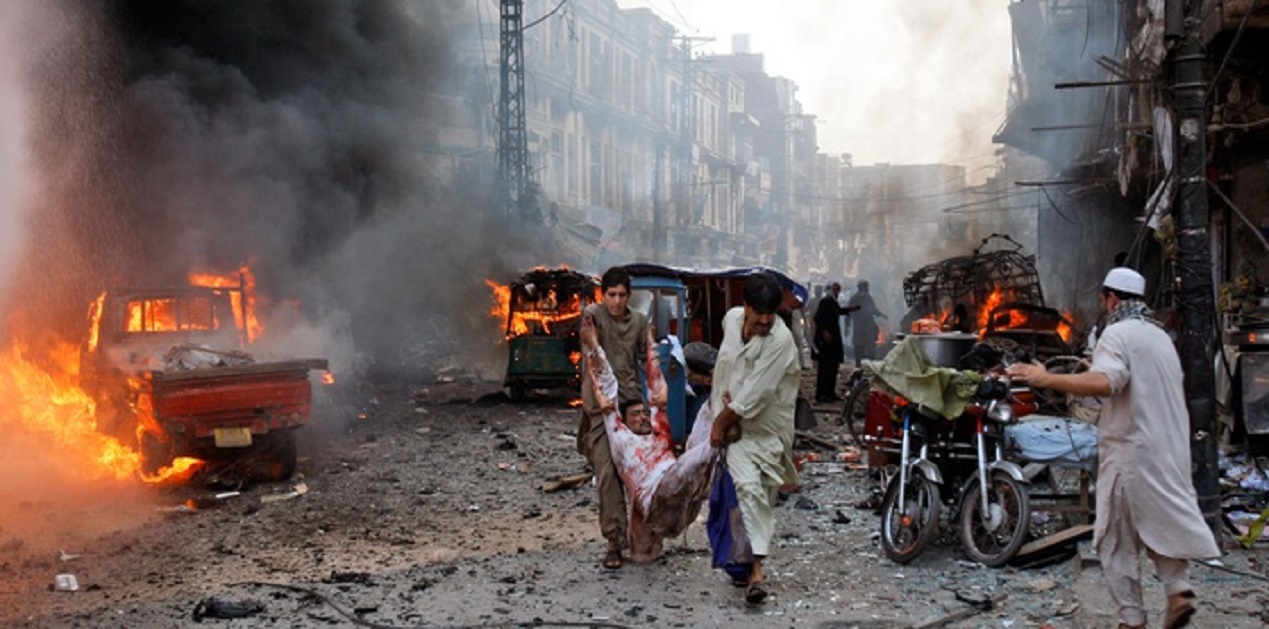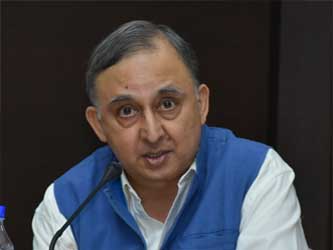Imperceptibly, violence, both terrorist and separatist, is rearing its head in Pakistan again. Following several operations like Zarb-e-Azb and Radd-ul-Fasad, the army had claimed that the situation had been brought under control. Recent events indicate, however, that such a conclusion may be premature. While Punjab has not escaped the violence, it is Khyber Pakhtunkhwa (KPK) and Balochistan that are facing the brunt of the attacks. The figures speak for themselves.
Khyber Pakhtunkhwa
On 27 July 2019, at least 06 security personnel, including an officer, were killed in the newly created North Waziristan district of KPK near the fenced Pak-Afghan border in Gurbaz, North Waziristan bordering Afghanistan. Pakistan alleges that the attack came from across the border. The banned Tehreek-i-Taliban Pakistan (TTP) claimed responsibility for the attack.
On 21 July 2019, TTP terrorists on four motorcycles opened fire on policemen at the Kotla Saidan check-post in Dera Ismail Khan town of KPK. Two Policemen were killed. After the attack, a burqa-clad suicide bomber (the police believe the person to be a female though the Taliban later released a photograph of a long haired man whom the group identified as the bomber) struck at the entrance of the hospital where the victims had been shifted. Four Policemen and three civilians who were visiting their relatives were killed and 30 others injured in the two incidents.
These terrorist attacks were identical in pattern to the ones that occurred on 08 August 2016 in Quetta. In those attacks an unknown terrorist killed the President of the Balochistan Bar Association Bilal Anwar Kasi. When his dead body was shifted to Civil Hospital Quetta, lawyers who gathered in the hospital were targeted with firing and bomb attacks, killing 70 members of the legal fraternity.
On 10 July 2019, one soldier was killed and another five injured in two separate bomb explosions in the North Waziristan District. The first incident occurred near Kharqamar check-post in Data Khel tehsil where a bomb disposal squad was searching the area and a remote-controlled Improvised Explosive Device (IED) went off. The second blast took place near Mir Ali town, when a security forces’ (SFs) vehicle hit an IED. Two SF personnel were injured in the blast.
On 07 June 2019, three army officers and a soldier were killed while another four soldiers sustained injuries when militants targeted a military vehicle through an IED planted on the roadside in the Kharqamar area of North Waziristan District.
On 01 June 2019, at least one army soldier was killed in a gun and bomb attack on a military vehicle in the Boya area of North Waziristan. The terrorists first opened fire on the army vehicle, which was on routine patrolling in the area, before detonating an IED.
On 12 February 2019, at least four policemen were killed and a Station House Office (SHO) was injured in an ambush in the Maharah area of Parowa Sub-District in Dera Ismail Khan District.
Balochistan
On 27 July unidentified militants attacked a contingent of the Frontier Corps between Hushab and Turbat in Balochistan in which 4 personnel were killed.
On 23 July at least three people lost their lives and 18 were wounded in a bomb blast in Balochistan’s capital Quetta. The explosive device was planted on a bicycle that was parked in front of a medical store and was later detonated with a remote control. No one immediately claimed responsibility for the blast.
On 26 June in the Loralai area of Balochistan, security forces foiled a terror attack killing three suicide bombers when one of the bombers blew himself up near the entrance gate of the Police Lines area. A policeman was killed and five people including a woman were injured in an exchange of fire.
On 07 June, two explosions hit two vehicles in the Ziarat area that claimed five lives and injured 13. The first blast targeted a vehicle carrying members of the Bohra community and the second a group of Shia Hazaras returning to Quetta from Ziarat.
On 06 June 2019, two Frontier Corps (FC) personnel were killed in an IED explosion in Harnai District in Balochistan.
On 18 April Baloch separatists killed 14 passengers belonging to the Pakistan Navy, Air Force and Coast Guards who were offloaded from buses and shot dead.
On 13 April 2019, members of the Hazara community were targetted in Quetta. Nine Hazaras were among the 20 who were killed. The others included a Frontier Corps soldier and civilians. Both the Lashkar-e-Jhangvi and the Islamic State, or Daesh, claimed responsibility for the attack, making it clear their target were the Hazara Shia community members.
On 29 January three suicide bombers stormed the office compound of deputy inspector general of police, Zhob Range, in Loralai, and detonated themselves killing nine policemen and injuring 21.1
Punjab
Punjab, too, has not been spared the wave of terrorism. On 08 May 2019, a suicide attack took place outside Data Darbar, the popular shrine of 11th century Sufi saint Ali Hajvairy in Lahore where the vehicle of the Elite Police was the apparent target. Ten people including four policemen and a security guard were killed and 25 others injured. Hizbul Ahrar, a splinter faction of the Jamaatul Ahrar, which in turn had broken away from the mainstream TTP in August 2014, claimed responsibility for the attack. This was the second terrorist attack at the Data Darbar. Earlier, on 01 July 2010, a suicide attack had killed more than 50 persons and injured around 200.
Conclusion
The recent surge in attacks show that the problem of terrorism has not been completely addressed. Even though army chief Gen Qamar Javed Bajwa described the latest assaults as ‘dying efforts of frustrated inimical forces’2, repeatedly the TTP and Baloch separatists have demonstrated that they retain the ability to carry out attacks at different locations. The attacks underscore that Pakistan has not yet been able to adopt comprehensive strategies to deal with militant actors of different ideologies.3
As the Dawn wrote editorially, ‘The attacks underscore the reality that more needs to be done before we can claim that Pakistan has seen the end of terrorism… In the past, the state had a peculiar predilection for promoting the concept of ‘good’ and ‘bad’ militants — a dangerous narrative that discounted the material and logistical links between ‘good’ and ‘bad’ jihadis.’ It added that for the incumbent government, ‘introspection would need to go beyond bans and blacklisting, as ineffective implementation of the new thinking can prove to be counterproductive in the long run.’4
Three points are relevant here. First, during his meeting with President Trump, Imran Khan had spoken about political solutions to end war and insurgency in Afghanistan by holding a dialogue with the Afghan Taliban. Perhaps, it is time that the Pak government took a leaf from its own book and adopted a political approach.
Second, the insurgency in Balochistan is now a decade and a half old. The army has not been able to suppress it militarily. Obviously, the political leadership needs to find a political solution for the Baloch issue. Advocating the need for a political solution to the Afghan problem, the government also needs to do the same in Balochistan.5
Third, belatedly, Pakistan has realised that terrorism is a hydra-headed monster. So long as these deliberately created terrorists were targeting India and Afghanistan they were seen as mujahideen. Later, since some have turned against their erstwhile masters, they have become terrorists. So long as Pakistan continues its duplicitous policies of distinguishing between ‘good’ and ‘bad’ terrorists, violence will continue. Pakistan still doesn’t get it that only a comprehensive counter-terrorism strategy that targets all shades of terrorists can succeed. Without it, attacks in Pakistan are likely to continue.
For example, Pakistan’s non-serious attitude can be seen for the fact that recently cases were instituted against the leadership of the banned Jamaat-ud Dawa (JuD), including its founding members Hafiz Saeed, Abdul Rehman Makki and Zafar Iqbal. This has been done in the run up to the October meeting of the Financial Action Task Force (FATF) to escape being blacklisted. Once the meeting is over, Hafiz Saeed will no doubt be a free man again.
References
- Saleem Shahid, ‘Bicycle explosion kills three in Quetta’, Dawn, 24 July 2019, www.dawn.com/news/1495865/bicycle-explosion-kills-three-in-quetta
- ‘Resurgence of terror’, edit in The Express Tribune, 29 July 2019, https://tribune.com.pk/story/2023527/6-resurgence-of-terror/
- ‘The threat is not over’, edit in Dawn, 29 July 2019, https://www.dawn.com/news/1496831/the-threat-is-not-over
- ‘Terror again’, edit in Dawn, 25 July 2019, https://www.dawn.com/news/1496095/terror-again
- ‘The Acts Of Cowardice’, edit in The Nation, 29 July 2019, https://nation.com.pk/29-Jul-2019/the-acts-of-cowardice
(Tilak Devasher is a former Special Secretary, Cabinet Secretariat, and currently Member, National Security Advisory Board, and a Consultant with the Vivekananda International Foundation. He has authored three books on Pakistan)
Image Source: https://www.pakistantoday.com.pk/2019/01/07/262-terror-attacks-claim-lives-of-595-people-in-2018-pips/n










Post new comment